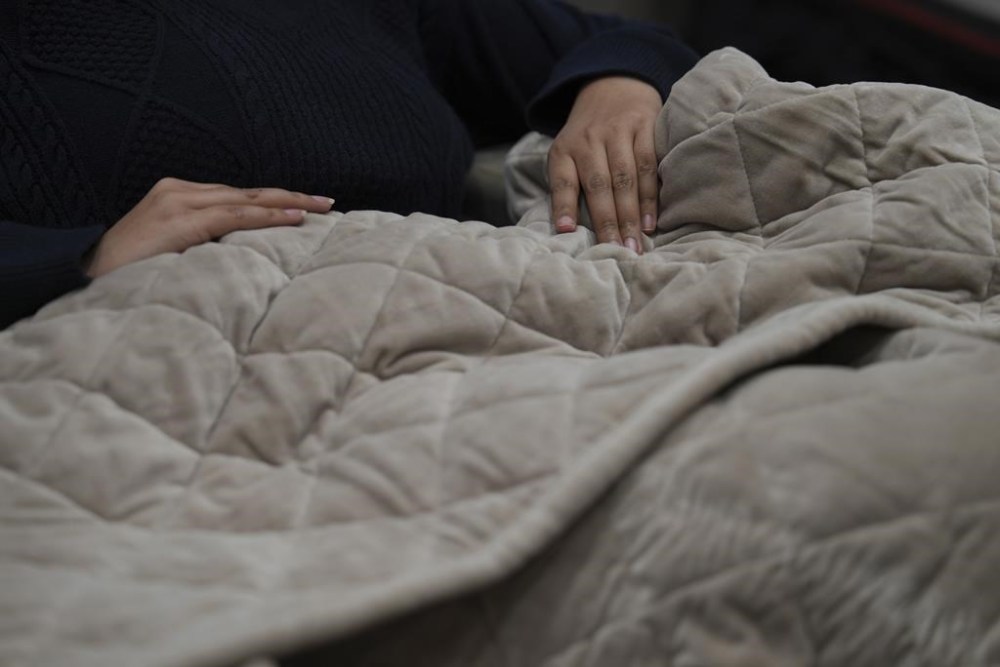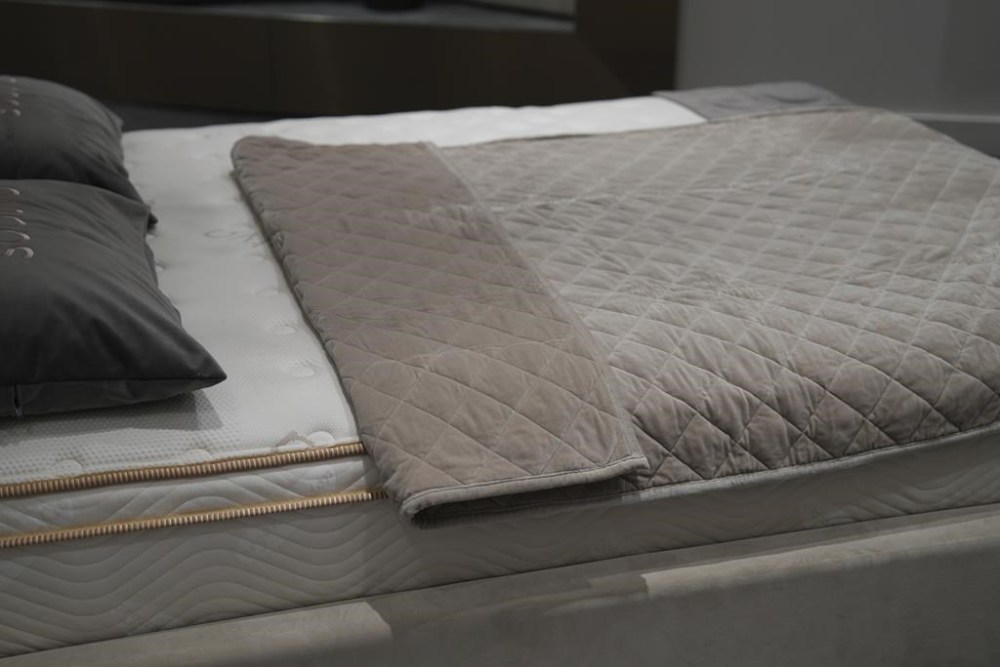Do weighted blankets help you sleep better? Here’s what to know
Advertisement
Read this article for free:
or
Already have an account? Log in here »
To continue reading, please subscribe:
Monthly Digital Subscription
$0 for the first 4 weeks*
- Enjoy unlimited reading on winnipegfreepress.com
- Read the E-Edition, our digital replica newspaper
- Access News Break, our award-winning app
- Play interactive puzzles
*No charge for 4 weeks then price increases to the regular rate of $19.00 plus GST every four weeks. Offer available to new and qualified returning subscribers only. Cancel any time.
Monthly Digital Subscription
$4.75/week*
- Enjoy unlimited reading on winnipegfreepress.com
- Read the E-Edition, our digital replica newspaper
- Access News Break, our award-winning app
- Play interactive puzzles
*Billed as $19 plus GST every four weeks. Cancel any time.
To continue reading, please subscribe:
Add Free Press access to your Brandon Sun subscription for only an additional
$1 for the first 4 weeks*
*Your next subscription payment will increase by $1.00 and you will be charged $16.99 plus GST for four weeks. After four weeks, your payment will increase to $23.99 plus GST every four weeks.
Read unlimited articles for free today:
or
Already have an account? Log in here »
Hey there, time traveller!
This article was published 07/12/2024 (342 days ago), so information in it may no longer be current.
NEW YORK (AP) — Rhonda James was skeptical when her husband ordered a weighted blanket for her online. But five minutes after she wrapped it around her body, she zonked out.
“It felt like a really big hug,” said James, a banker in Charleston, South Carolina.
As outside temperatures grow chilly, weighted blankets can be a popular choice to warm up. Some people say the added pressure helps them soothe the worries of the day and get to sleep faster.

But research on the effectiveness of weighted blankets is limited. Here’s what to know.
What is a weighted blanket?
Weighted blankets come with extra heft in the form of glass beads, pellets, cotton or another filling. Scientists haven’t studied exactly how the blankets work, but they have a few ideas.
The blankets’ firm touch may calm the brain’s fight-or-flight response, said Dr. Neal Walia, a sleep medicine expert at UCLA Health.
“The evenly distributed weight on you tells your body, ‘Hey, you’re in a calm environment,’” he said.
The extra pressure also may signal the brain to release what’s called the love hormone, also known as oxytocin. It’s produced during bonding and cuddling, and can also lower anxiety, Walia said.
How do I use a weighted blanket?
For most healthy adults, experts say to choose a blanket that is about 10% of their body weight. So a 150-pound person may opt for a 15-pound blanket.
Weighted blankets are not recommended for babies or toddlers since they can hinder movement and breathing.
People with sleep apnea, sleep-related disorders or respiratory problems should check with a doctor before using a weighted blanket.
The blankets aren’t for everyone and each person gets the best out of their blanket differently. For example, some may find them too hot to use during warmer months.
And the extra swaddling comes at a cost: quality weighted blankets can range from $50 to over $300 depending on the size, weight and material.
James takes hers out of the closet to unwind when she’s watching TV or sipping a glass of wine.
Lucy Taylor, a freelance writer from Wales, uses her blanket to fall asleep when her anxiety spikes during the winter.

“If my body’s relaxed, my mind follows suit,” she said.
Can weighted blankets improve sleep?
There isn’t a ton of research on whether weighted blankets actually work, and the studies that do exist are on small groups. Most studies don’t focus on the average sleeper. Instead, they investigate whether weighted blankets can help people with chronic sleep problems, mental health conditions or developmental disorders.
There are some hints that weighted blankets can help with anxiety, chronic pain and sleep. But the research isn’t conclusive.
A study on 120 people with insomnia found that the weighted blankets helped them sleep better compared to a light blanket. Another study on 67 children with autism found the weighted blanket didn’t affect their sleep at all – but the children and their parents preferred it to a regular blanket.
And a third study on 94 adults with chronic pain found that a heavier weighted blanket didn’t affect sleep, but was better at reducing pain compared to a lighter one.
Even though there’s not yet strong evidence to back up the benefits of weighted blankets, sleep experts say there’s no harm in giving them a try if you’re willing to splurge.
Dr. Daniel Barone, a sleep medicine expert at Weill Cornell Medicine, suggests it to his patients after other traditional therapies and medicines.
“If it doesn’t hurt and it may help, it’s worth a shot,” he said.
___
The Associated Press Health and Science Department receives support from the Howard Hughes Medical Institute’s Science and Educational Media Group. The AP is solely responsible for all content.

